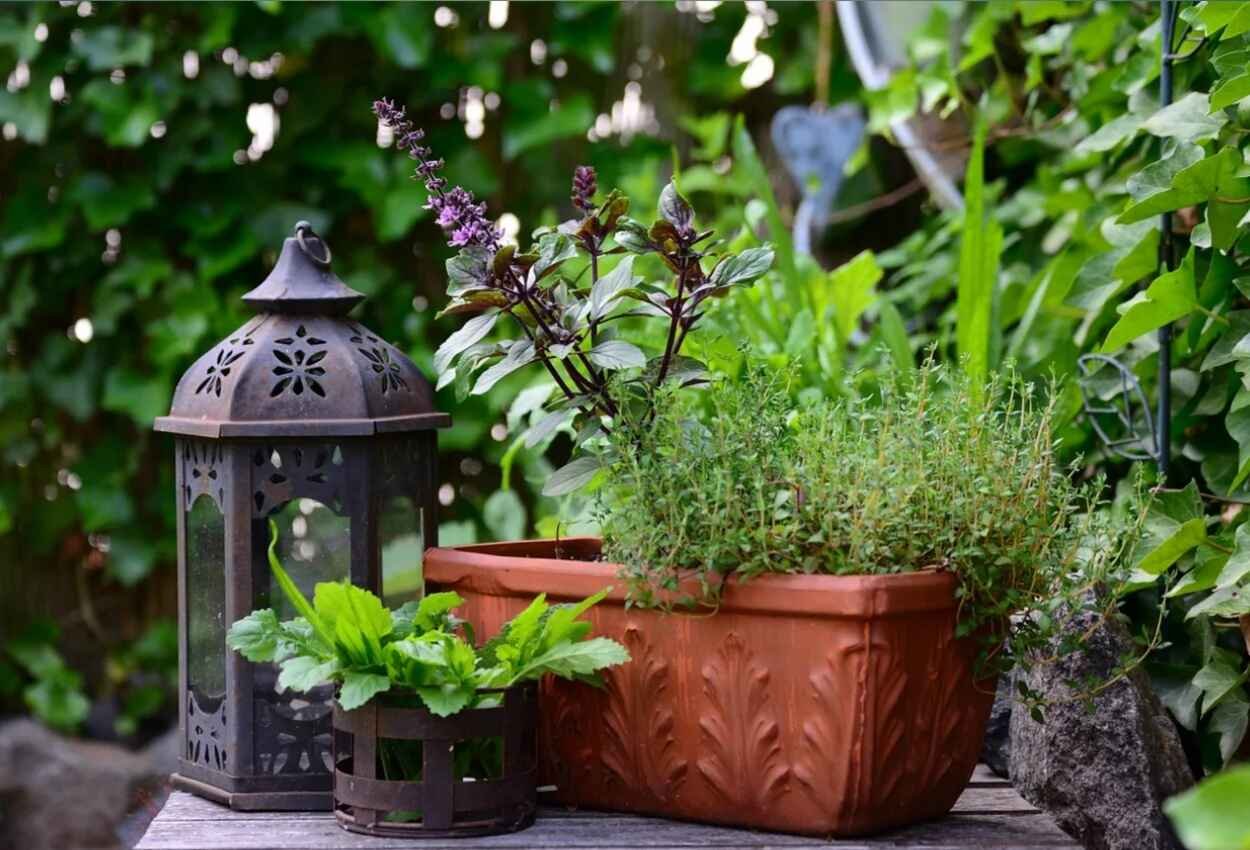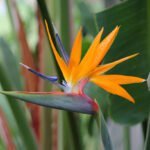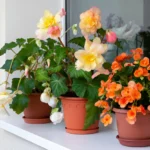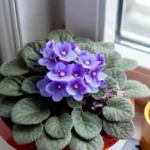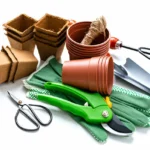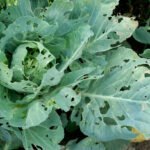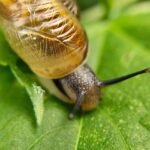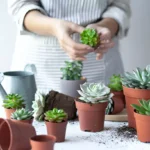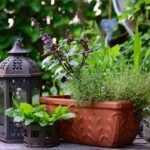Table of Contents
You enjoy spending time in your garden, harvesting and tending to it, and having a great time in your garden. But pest damage to your tomato plants while harvesting in the garden can be a real tragedy. Insects also need food. They eat different parts of plants and mature vegetables. That is part of the ecosystem but can be frustrating and annoying to gardeners. You grow vegetables organically and don’t want to use chemical fertilizers and pesticides, as chemical pesticides can also cause side effects.
There is no insect repellent at home. You want to repel insects differently, which can help you save money in the long run. Specific herbs that you can plant in your home, garden, or border effectively repelling insects in your home.
These herbs emit chemicals into the air that are fragrant to us but offensive to insects and pests. As they are attracted to the scent of plants and crops, the irritating scents from these herbs reach them, making them no longer attracted and losing the opportunity to harm your vegetables.
With intelligent planting of these companions, you can keep pests away from your garden and garden crops at no cost. The more exciting thing is that these herbs are known to you and even in China, but you may need to learn the properties of these herbs. Herbs also attract beneficial insects that help pollinate and suppress harmful insects. Herbs contribute to the richness of your garden without harming pollinating insects.
We can learn from research that more than 2,000 cases of malaria are reported annually in the United States and that there are more than 190-200 types of mosquitoes that carry 10-12 of the dreaded pathogens on their bodies. Mosquitoes can genuinely rule your garden and lawn area. In addition to having ways to eliminate them permanently, you can reduce them from your area with the ten herbs listed in our article. Keep reading
10 Herbs & Plants That Will Help Repel Pests From Your Love Garden
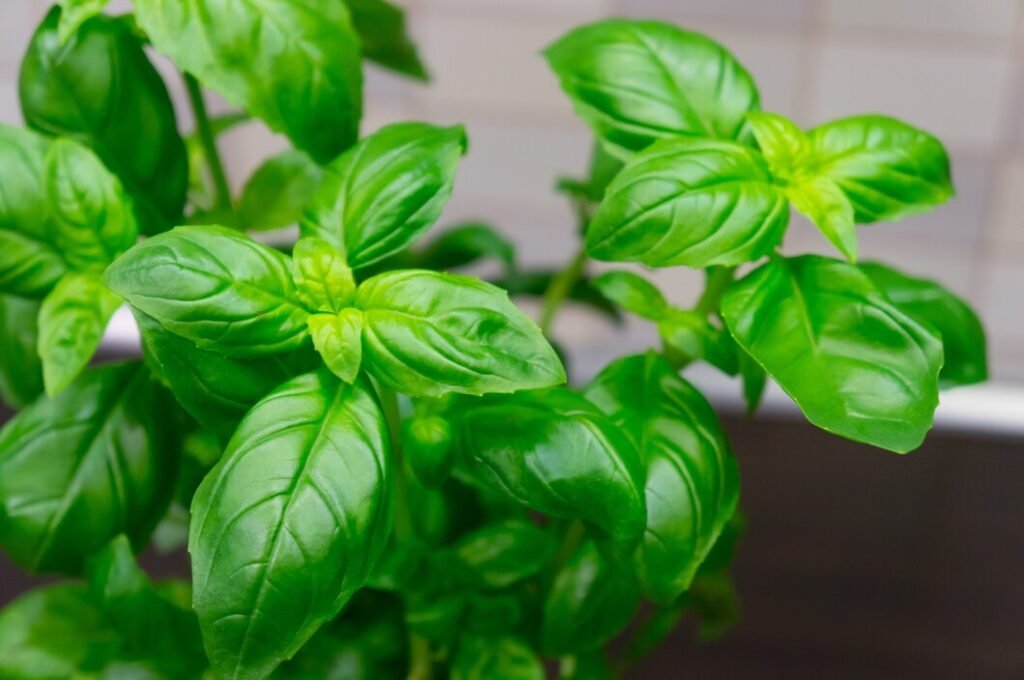
Basil
Basil is not only a herb but also plays an influential role in repelling pests in your garden or lawn. If you are looking for a home herb that can be used in cooking and a mosquito repellent, Tulsi can be a good choice. Basil is a member of the Lamiaceae family. It effectively controls tomato hornworms, thrips, aphids, flies, ants, and mosquitoes in tomato gardens.
You can plant basil around your house. Planting basil near the entrance and windows of your house will reduce mosquitoes’ entry. The smell of tulsi plants repels mosquitoes. Lime basil and holy basil are two popular varieties of basil.
Repellent insects: tomato hornworms, thrips, aphids, flies, ants.
USDA ZONE: 10-11
Light: 6-8 hours of direct sunlight
Soil: They prefer well-drained soil
Watering: 1 or 2 times a week.
Basil is an antibacterial and antioxidant, increasing immunity and reducing pain. It also contains vitamins and minerals that are very beneficial to our bodies.
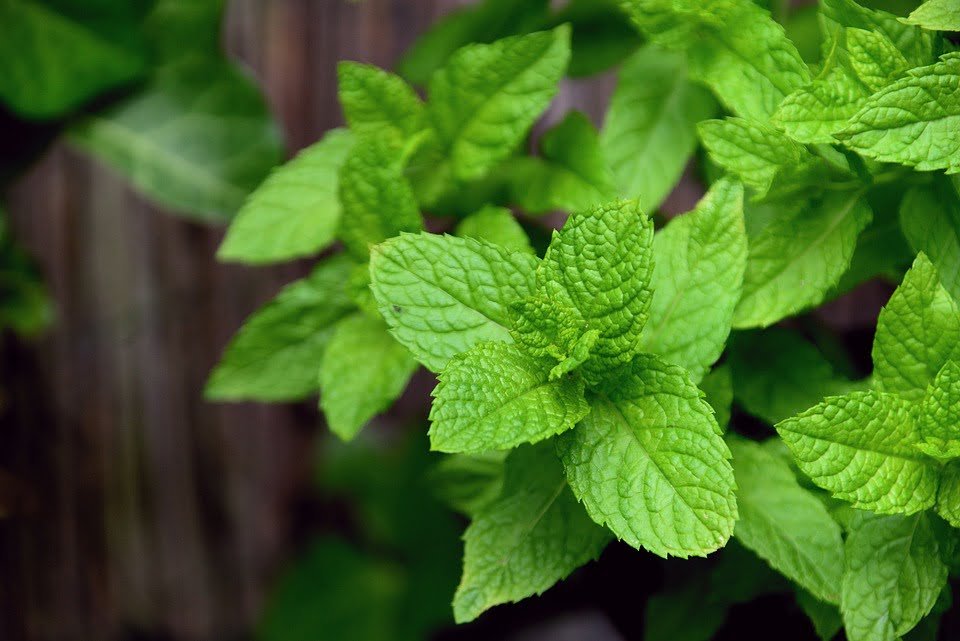
Mint
Peppermint is a herb that everyone more or less loves, but its benefits may surprise you. Research has shown that peppermint is a very effective insect repellent. You can rub a few peppermint leaves on your body to prevent mosquito bites; it will keep the mosquitoes away. Humans love peppermint fragrance, but it is repulsive to insects.
Plant mint around your home where there is plenty of light and air. Peppermint is also effective in keeping mice away. If there are a lot of ants in the lawn or backyard that are destroying your plants, fruits, and vegetables, you should search for the ant holes and sprinkle some dried mint there, and the ants will go away.
You can also sprinkle mint powder around your kitchen or backyard garden soil. To repel insects from your house and favourite garden, spray peppermint oil (make oil) or mix any oil or rubbing alcohol with hot water.
Repels insects: mosquitoes, ants, spiders, and even mice
USDA Zone: 5-9.
Light: In direct light
Water: once in 2-4 days.
Soil: Moist
Mint helps improve human health. Eating mint regularly helps to reduce cold, gas, and allergy-related problems.
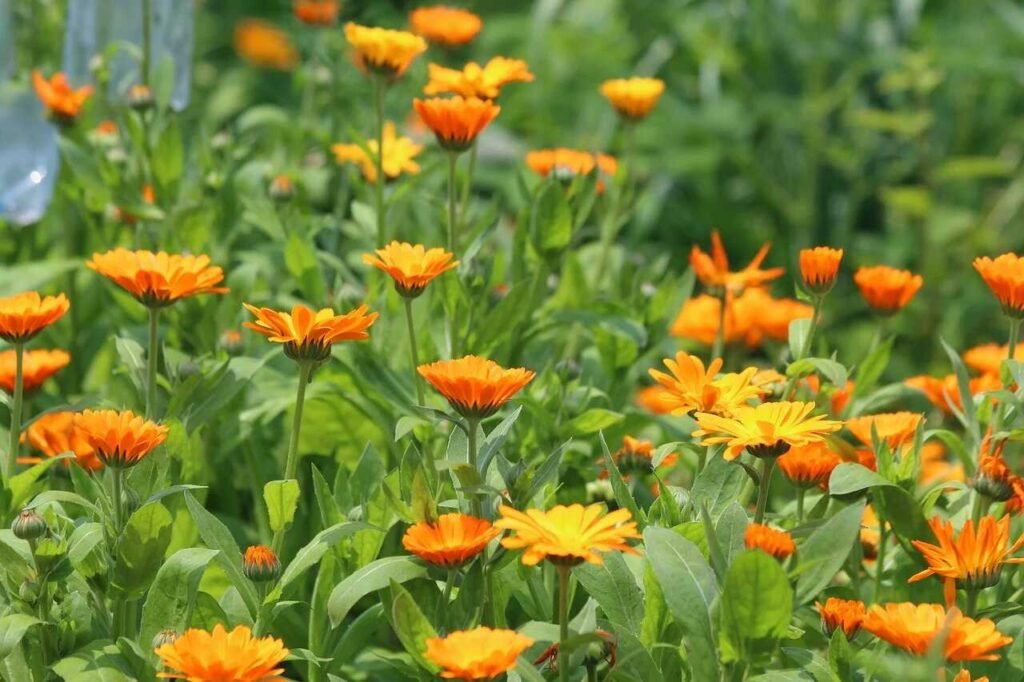
Calendula
Calendula is a beautiful, bright-flowered herbaceous plant with orange, yellow, and cream flowers. It belongs to the Asteraceae family. Calendula helps to make your home bloom and repel harmful insects. Its flowers and leaves are also used in human skincare. If insects in your garden destroy your produce and damage plants, plant calendula around the beds.
One of the most outstanding qualities of calendula flowers is that they attract beneficial insects that help eliminate harmful insects. Hoverflies and ladybirds (which eat aphids) are attracted to them. In the United States, calendula effectively restores cadmium to soil at high temperatures.
It attracts beneficial insects as well as repels pests. It reduces the attack of tomato plant hornworms and cabbage diamondback moths. Calendula can be a great addition to your garden.
Repels insects: Aphis, asparagus beetles, cabbage worms, corn earworms, flea beetles, Japanese beetles, nematodes, potato beetles, squash beetles, and tomato hornworms.
USDA Zone: 3-7
Soil: Fertile and well-drained soil
Light: Government light
Water: May be given 1 or 2 days a week depending on the medium tested.
Calendula effectively treats viral, bacterial, and skin infections in the human body.
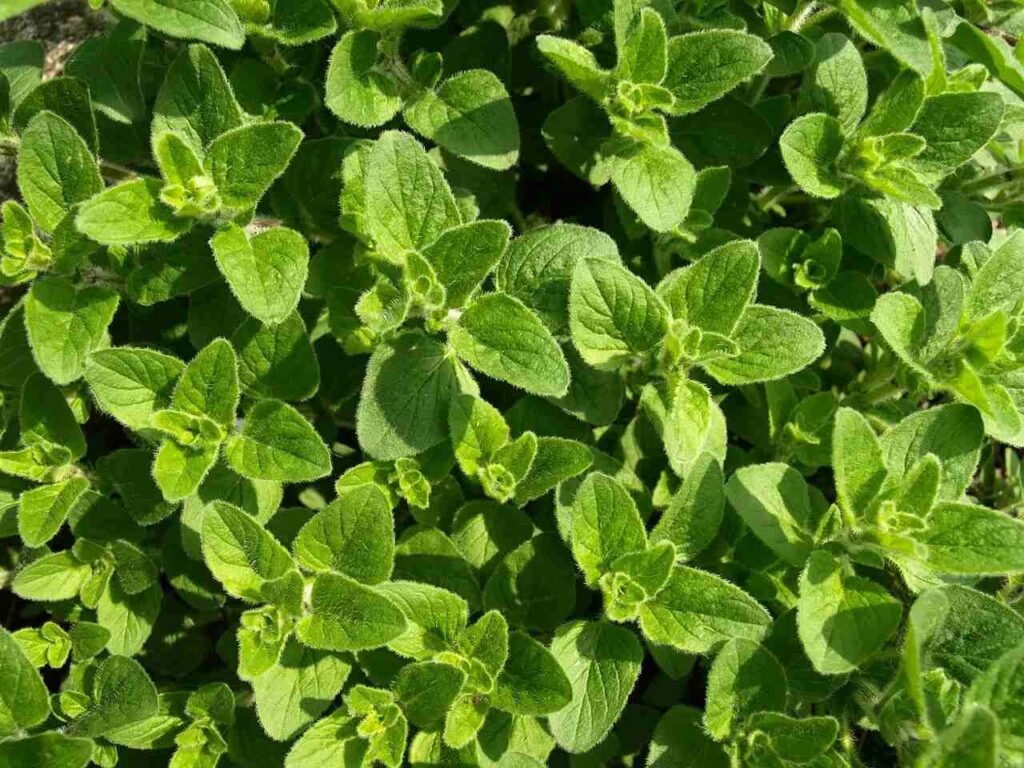
Oregano
Oregano is a member of the Lamiaceae family. Like mint, it doesn’t take long to spread across your garden once planted. It is native to Europe and Asia. Oregano is a beneficial herb for repelling insects and mosquitoes. American gardeners plant oregano in bare spots in their garden beds, windowsills, and lawns. Due to its properties, it has become a prevalent herbicide used in insect repellence, oil application, and wound healing in the human body.
You can plant cabbage, pumpkin, cauliflower, broccoli, turnips, carrots, and radishes near oregano. Oregano adds flavour to savoury dishes. You can also grow them indoors. You will find different types of oregano, which are edible and practical in repelling insects but can be toxic to your pets.
Repels insects: Aphids, cabbages, moths, and cucumber beetles
USDA Zone: 4-10
Light: Direct light and at least 6 hours
Water: Water sparingly if the soil is dry.
It reduces the risk of cancer in the human body and reduces skin and allergy problems.
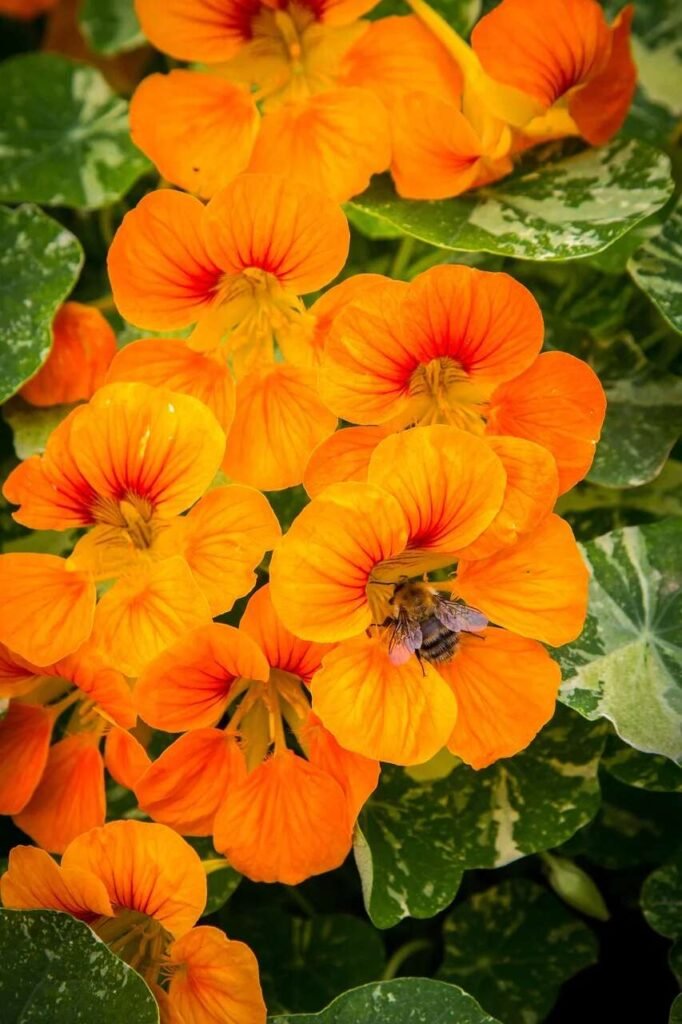
Nasturtium
Colorful annual nasturtium flowers not only provide color to your landscape but also deter pests. Pests infesting your cabbage plant? Nasturtium! Being infested by cucumber beetles? Nasturtium! It will enhance the beauty of your garden, and they can grow entirely neglected. Plant it in spring to get flowers.
Nasturtiums are beautiful and easy to grow in your garden. Plant them around your garden and near raised beds for full benefits. Aphids are especially attracted to yellow flowers. For better results, you can plant yellow nasturtiums around your garden. You can also plant nasturtiums alongside eggplant or squash plants.
Repels insects: Cucumber beetles, whiteflies, aphids, squash bugs, cabbage loopers.
USDA Zone: 9-11
Soil: Well-drained soil.
Light: Full sun is required.
Water: Regular watering.
Nasturtium acts as a good quality antiseptic in addition to curing human pleurisy. It can fight against bacteria and fungi and heal your body’s wounds faster.
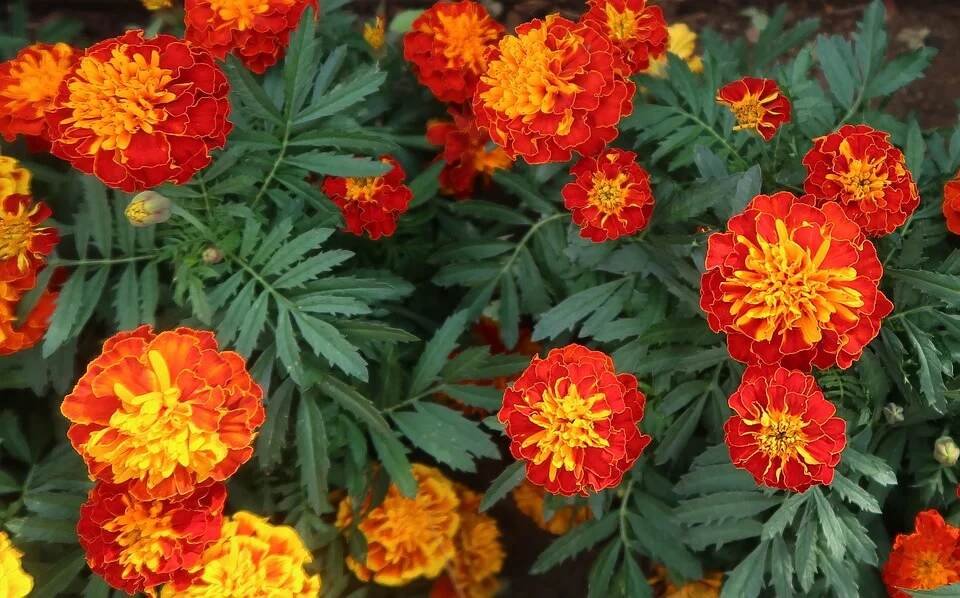
Marigold
If you want to see red, yellow, orange, and white double-layered flowers at the entrance of your house, then you can plant marigolds. In addition to blooming and scenting your home, marigolds are also very effective in repelling mosquitoes. You can also plant them near your raised bed. As a result, the cabbage worms will stay away from the fragrance of the flowers and will be unable to damage the fruits you produce.
Marigold repels certain nematodes. Its roots release toxic chemicals that inhibit nematode eggs from hatching, killing nematodes in the soil.
Repels insects: Aphids, whiteflies, mosquitoes, and cabbage worms.
USDA Zone: 10+
Light: Direct light
Soil: Fertile and well-drained soil
Water: 1 or 2 times a week, depending on soil dryness
Marigold petals are rich in antioxidants. They increase blood flow and hydrate dry skin. Effective in responding to body injuries and wounds.
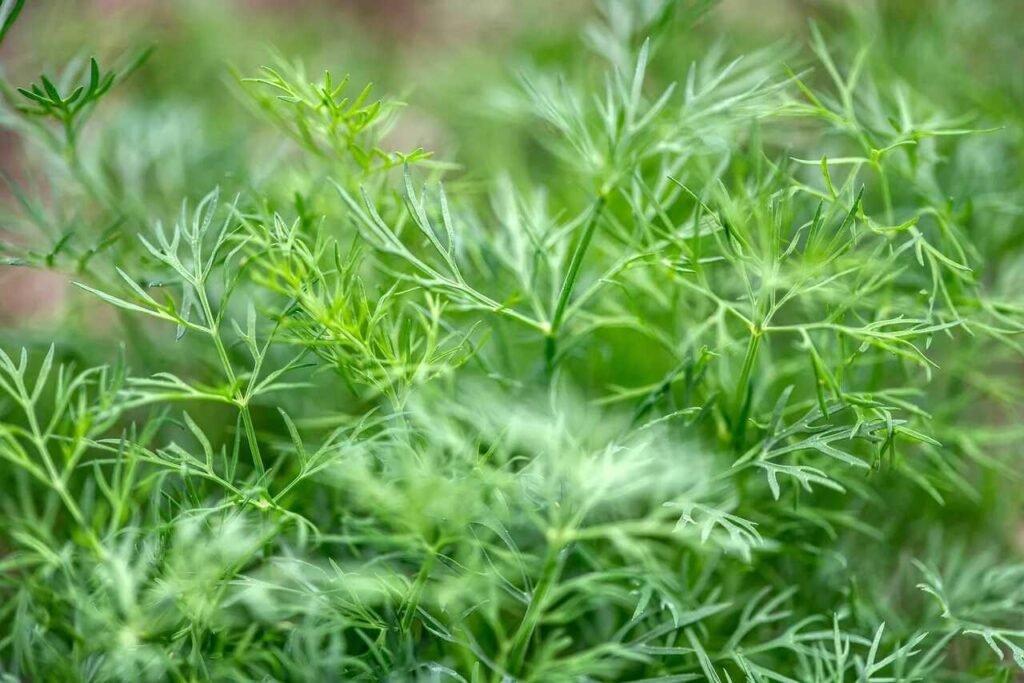
Dill
Just hearing the name dill may bring pickles or salads to your mind. However, this annual herb of the celery family Apiaceae is great for keeping pests away from your garden. The ideal time to grow dill indoors is from April to June.
Dill will provide food for the pollinators in your garden. Dill flowers are surrounded by bees that help pollinate your garden. Aphids are attracted to dill, but so are their predators. Remember that when growing dill in your backyard, you’re growing herbs and cultivating a miniature wildlife refuge.
Repels Insects: Cabbage, moths, and spider mites.
USDA Zone: 3-7
Light: Direct light
Soil: Fertile soil with manure
Water: Regular watering
Dill helps reduce cholesterol and diabetes, increases antioxidants, and controls blood sugar levels. You can eat 4-8 grams of dill per day.

Chives
Chives are a perennial herb used in cooking and has insect-repellent properties. They are part of the onion family and are found in most parts of Northern Europe and Asia. Due to their insect-repellent properties, chive cultivation is increasing in vegetable gardens. Beneficial pollinators provide copious amounts of nectar to help pollinate plants.
In addition to repelling unwanted insects from the garden, chives fight fungus attacks, mildew, and scrub. You can plant them in raised beds and around the beds in your garden.
Repels insects: Aphids, mites, Japanese beetles, as well as rabbits.
USDA Zone: 3-9
Light: Full Sun
Soil: Excavated soil with manure added
Water: Water regularly during the dry season.
It supplies the human body with many vitamins (vitamins K, A, and C), improves the heart and eyesight, and reduces the risk of cancer. You can eat 3-12 grams per day.
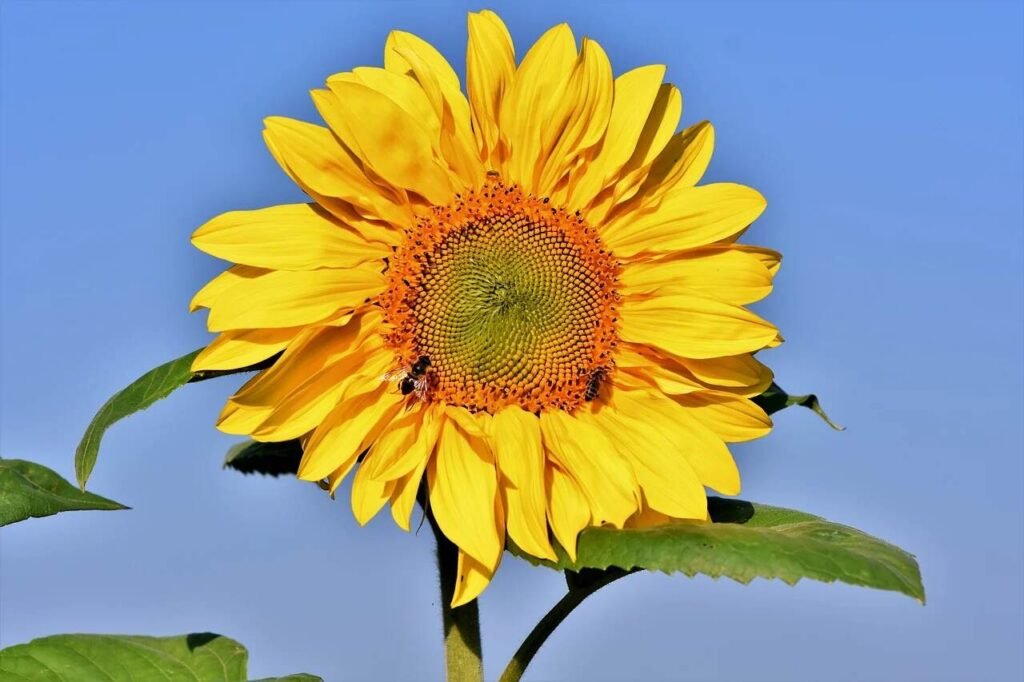
Sunflower
Sunflower is a large annual species in the daisy family, Asteraceae. Sunflowers are harvested for their edible oily seeds, used to make oil. Its flowers add beauty to your home and can be a trap species for destructive pests like beetles and a great way to attract predatory insects for pest control.
Bees are primarily attracted to the sweet flowers of the sunflower. It also attracts wasps and assassin bugs that control pests from your garden. Sunflowers may be planted in raised garden beds.
Sunflowers naturally produce and release an insect-repellent chemical called pyrethrum into the air, which irritates beetles and mites and helps keep them away from your sunflowers.
Repels insects: Beetles and leaf-footed bugs
USDA Zone: 2-11
Light: Full sun
Soil: Fertile and well-drained soil
Watering: Water regularly during the growing season and 1 or 2 times a week at other times.
Sunflower seed oil boosts immunity, lowers blood cholesterol levels, reduces cancer risk, and improves skin.
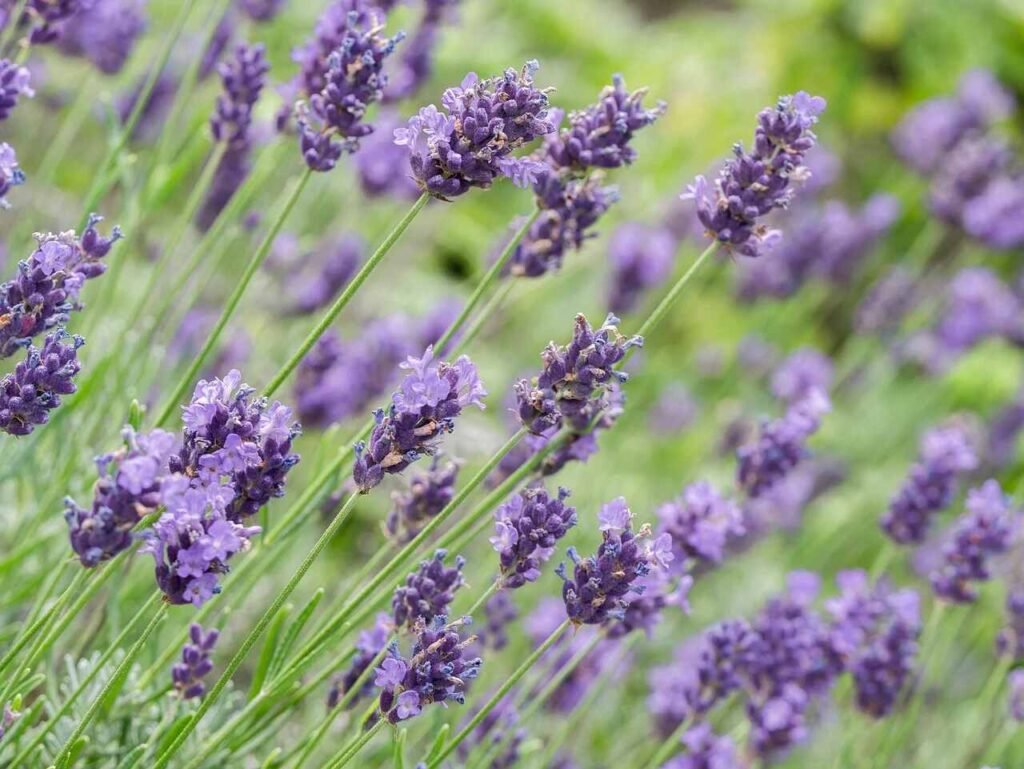
Lavender
Lavender is a perennial flowering plant in the mint family, Lamiaceae, and can be a great addition to a perennial garden. However, you can incorporate lavender into your garden on a smaller scale if you don’t need landscaping, hedges, or walls. If you have a lot of mosquitoes in your backyard that prevent you from going out at night, you have pets and small children in the house, and you don’t want to apply insecticides, then you can plant lavender. Its sensitive smell greatly attracts mosquitoes and moths.
You can make a homemade liquid insecticide from lavender plant flowers and spray it around your house and outside. You can also make lavender oil at home to keep mosquitoes away while you work outside and in the garden. Mosquito infestations can increase near your garden during warmer months.
If you have lavender plants planted in your garden, the smell of lavender will keep these mosquitoes and flies away. Lavender attracts mosquitoes as well as certain types of moths.
Repels insects: Mosquitoes, moths, flies.
USDA Zone: 5-9
Light: Direct light (6-8 hours)
Soil: Sandy and gravelly soils have good drainage.
Water: Not regularly; water when the soil is dry.
Lavender influences our health. It helps reduce stress, digestive problems, nausea, indigestion, and irritated skin.
Share on facebook
Share on linkedin
Share on pinterest
Share on reddit
Share on whatsapp
Share on telegram
Share on email
Share on skype
Share on print
